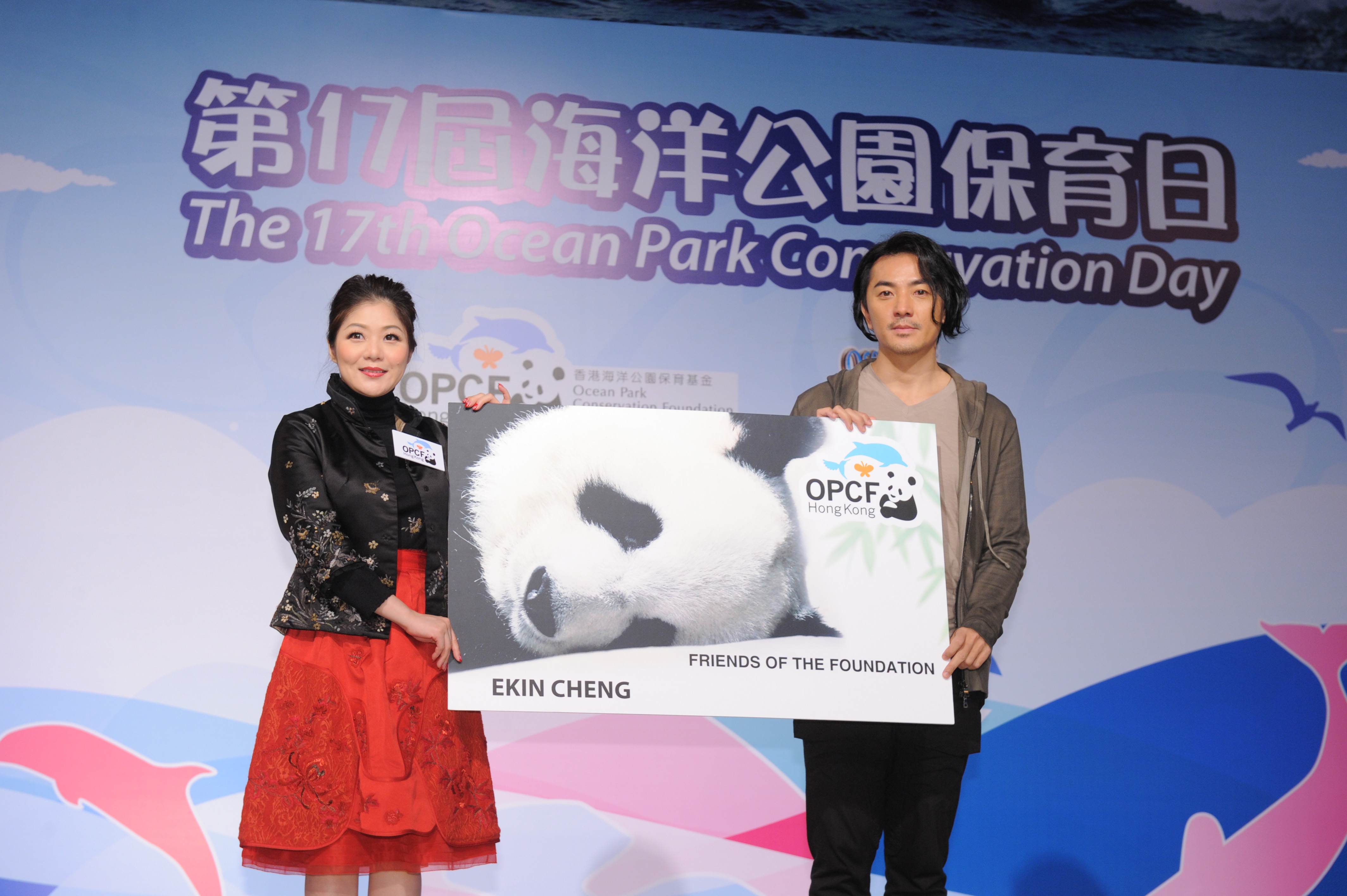Background
Since May 2006, OPCFHK has been collaborating with Agriculture, Fisheries and Conservation Department (AFCD) to investigate the cetacean stranding cases in Hong Kong. Ocean Park also supports the Marine Life Stranding Response Team with technical expertise through their veterinary team and the Marine Mammal Department. The Response Team will attend the site timely after receiving a stranding report, to conduct necropsy on site or at Ocean Park, depending on the carcass condition, and collect samples for further examination. In case of live stranding, OPCFHK will work with AFCD and Ocean Park to explore options of rescue.
In addition to establishing and managing the only Cetacean Stranding Response Team, OPCFHK has long participated in the work of the Marine Mammal Conservation Working Group (MMCWG), of which dolphin researchers, scientists, fishermen leaders and representatives from different government department also participate. OPCFHK shares findings from the stranding cases and provide group members with the latest conservation status of local cetaceans. OPCFHK makes recommendation to the Hong Kong SAR Government and helps AFCD to review and refine the Chinese white dolphin and finless porpoise conservation programmes.
Though most cases refer to carcass retrieval, we shall not undermine the importance of the bodies. Necropsy and analysis on samples collected help us obtain important information:
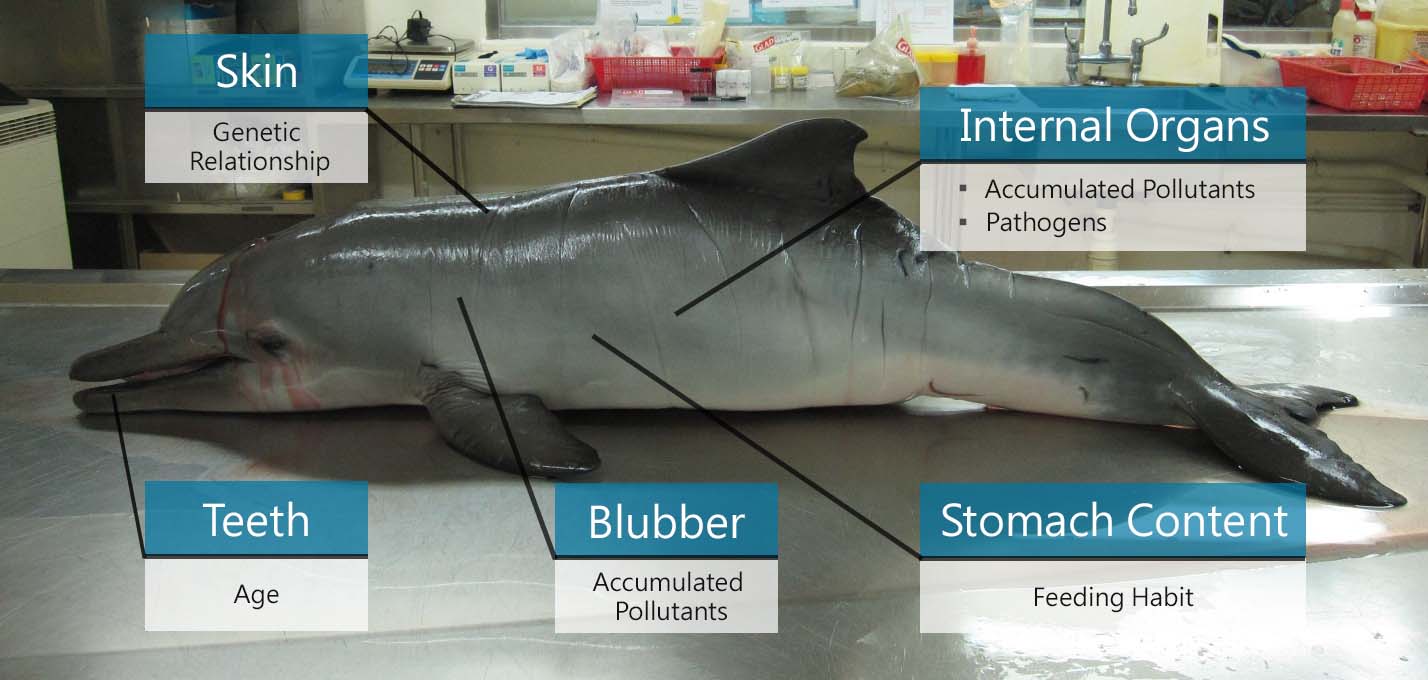
In order to better understand the cause of death of stranded cetaceans in Hong Kong waters, and enhance the accuracy on such diagnosis, the Foundation has started a project jointly with Dr. Brian Kot, visiting Assistant Professor, Jockey Club College of Veterinary Medicine and Life Sciences, City University of Hong Kong in April 2014 to perform virtopsy (i.e. is a virtual alternative or supplement to a traditional necropsy, conducted with computed tomography (CT) scanning and magnetic resonance imaging (MRI)) on stranded Chinese white dolphins and finless porpoises prior to conventional necropsy according to the status and condition of the stranded animal. We hope to generate invaluable initial or additional information which supplements the conventional necropsy practice.
Procedures
The members of “Marine Life Stranding Response Team” (the Team) include the Foundation’s Scientific Team, Consulting Veterinarians and Conservation Assistants. The Team is always ready to different places in HK to follow-up the case. Additionally, the Marine Mammal, Aquarium and Veterinary Teams of Ocean Park will provide assistance in fresh carcass necropsy and live stranding rescue when needed.
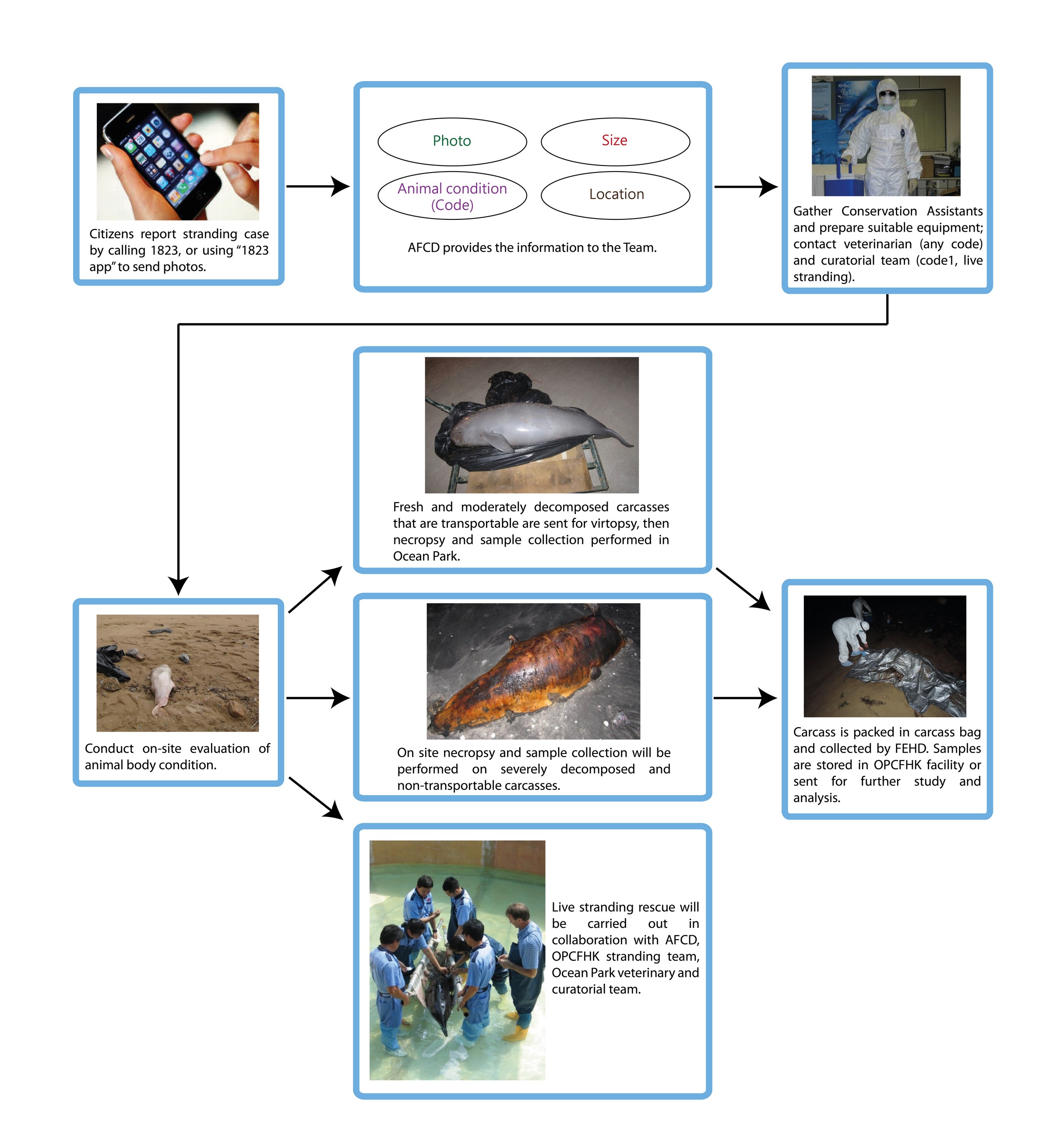
Stranding Cases & Numbers
There are around 2,500 Chinese white dolphins in the Pearl River Estuary, including Hong Kong; and about 200 finless porpoises in Hong Kong and adjacent waters. The average number of cetacean stranding cases in Hong Kong ranged from 20 to 50 per annum over the years, with the two resident species Chinese white dolphin and finless porpoise as majority; and only a few cases of other species. However, we would only confirm the cause of death in around 10% of the cases, mainly because most of the carcasses were badly decomposed when discovered.
Hong Kong Marine Life Stranding Online Database
Cetacean Stranding Cases in Hong Kong since 2006:
Local Threats to Cetacean
As most of the carcasses were found highly decomposed, the cause of death for only 10% of the cases could be determined. With previous data, the Foundation concluded the 3 major causes of death:
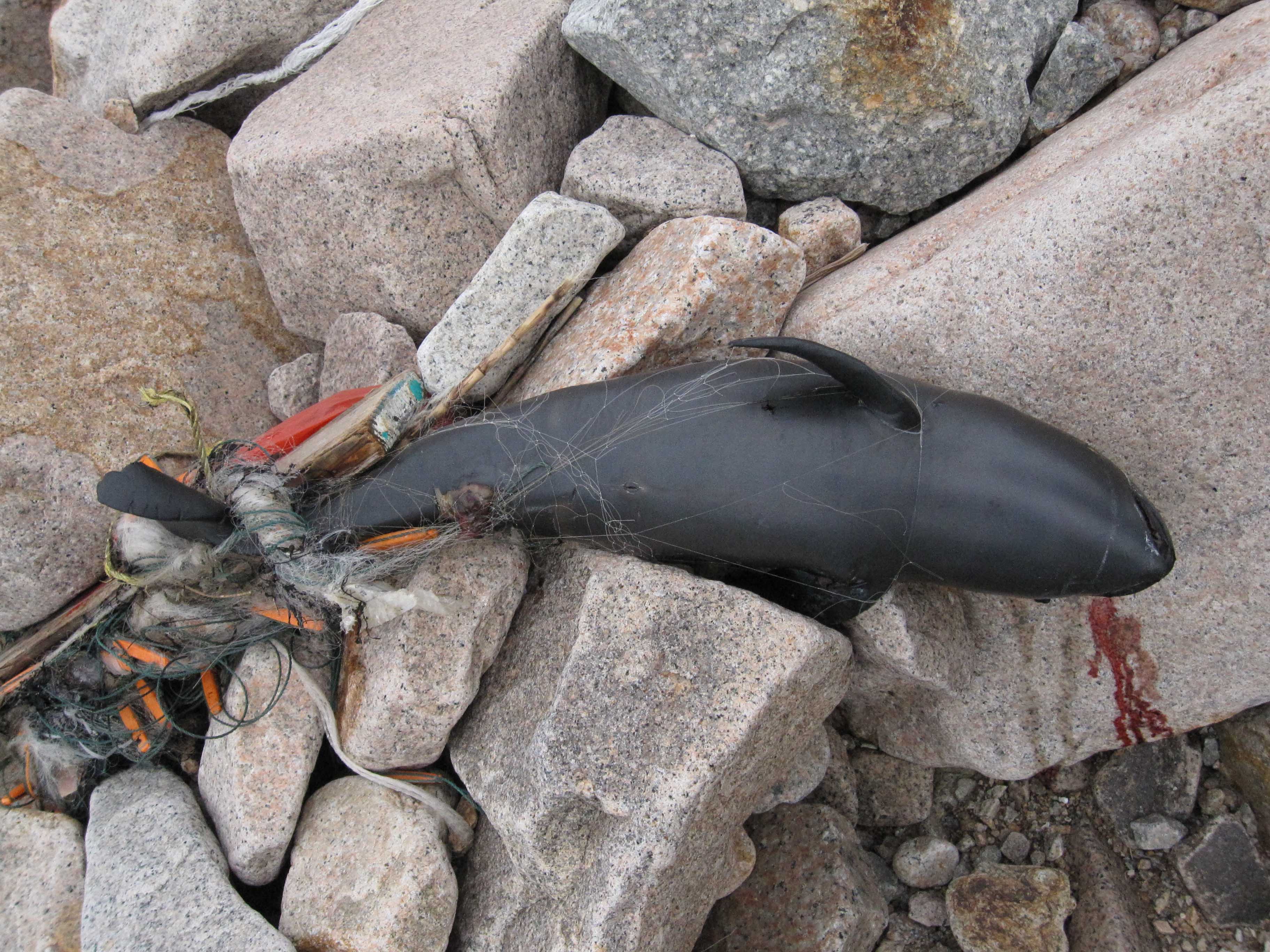 |
Fishing net entanglement Cetacean can be entangled and killed by fishing nets or gears abandoned in the sea. A Chinese white dolphin was suspiciously killed by 5 abandoned fishing gears of 3.5 kg entangling its head and fluke; a young finless porpoise was drown by entanglement in fishing net. We also found fishing hooks in their stomach, which demonstrated the adverse impacts of abandoning fishing gears in the sea on dolphins' well-being. |
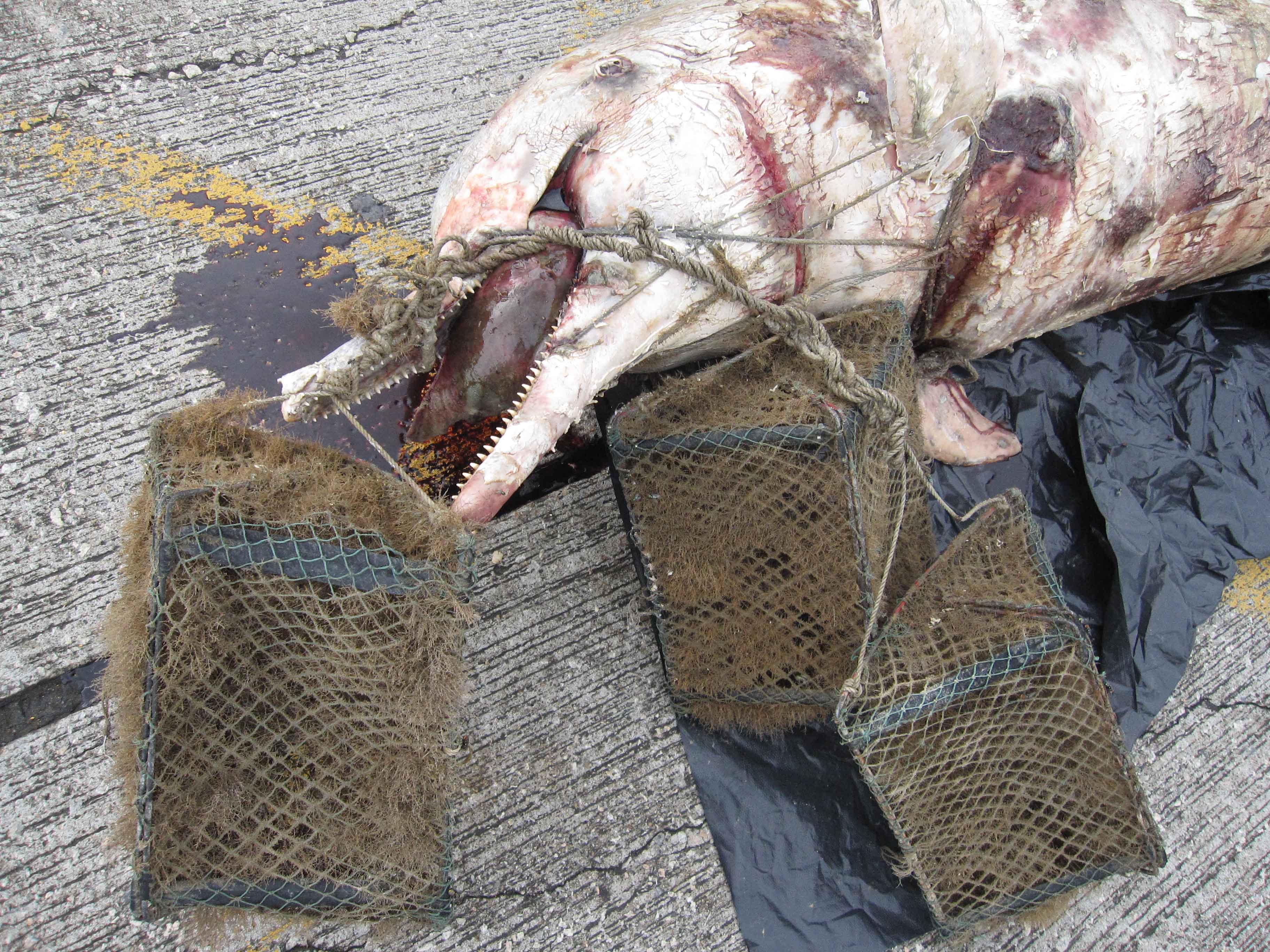 |
|
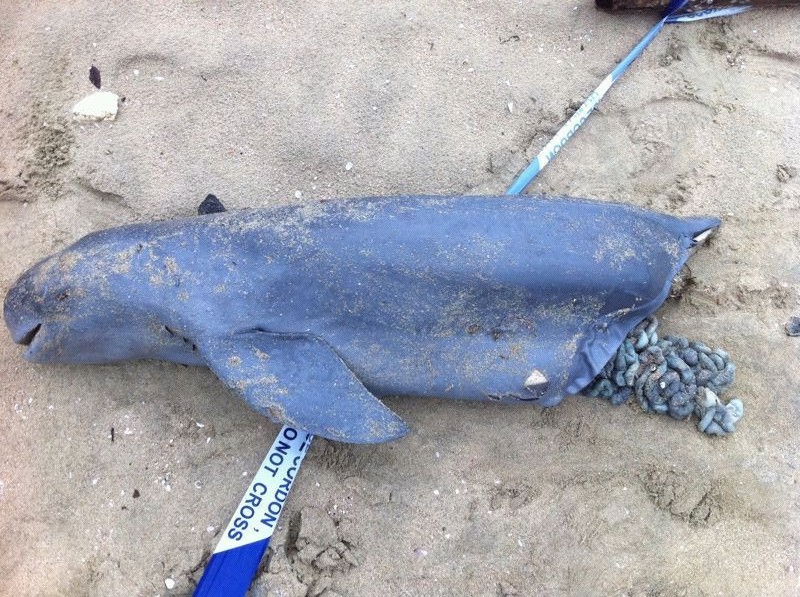 |
Trauma by boat Some carcasses were found with bruises and serious trauma which may be resulted from boat strike. A few finless porpoise carcasses were found without head or body, which may be caused by propeller or other forms of human activities. Besides, we have found undigested fishes in the stomach sample, proving they still had foraging ability before death. The death is possibly related more to trauma than sickness. |
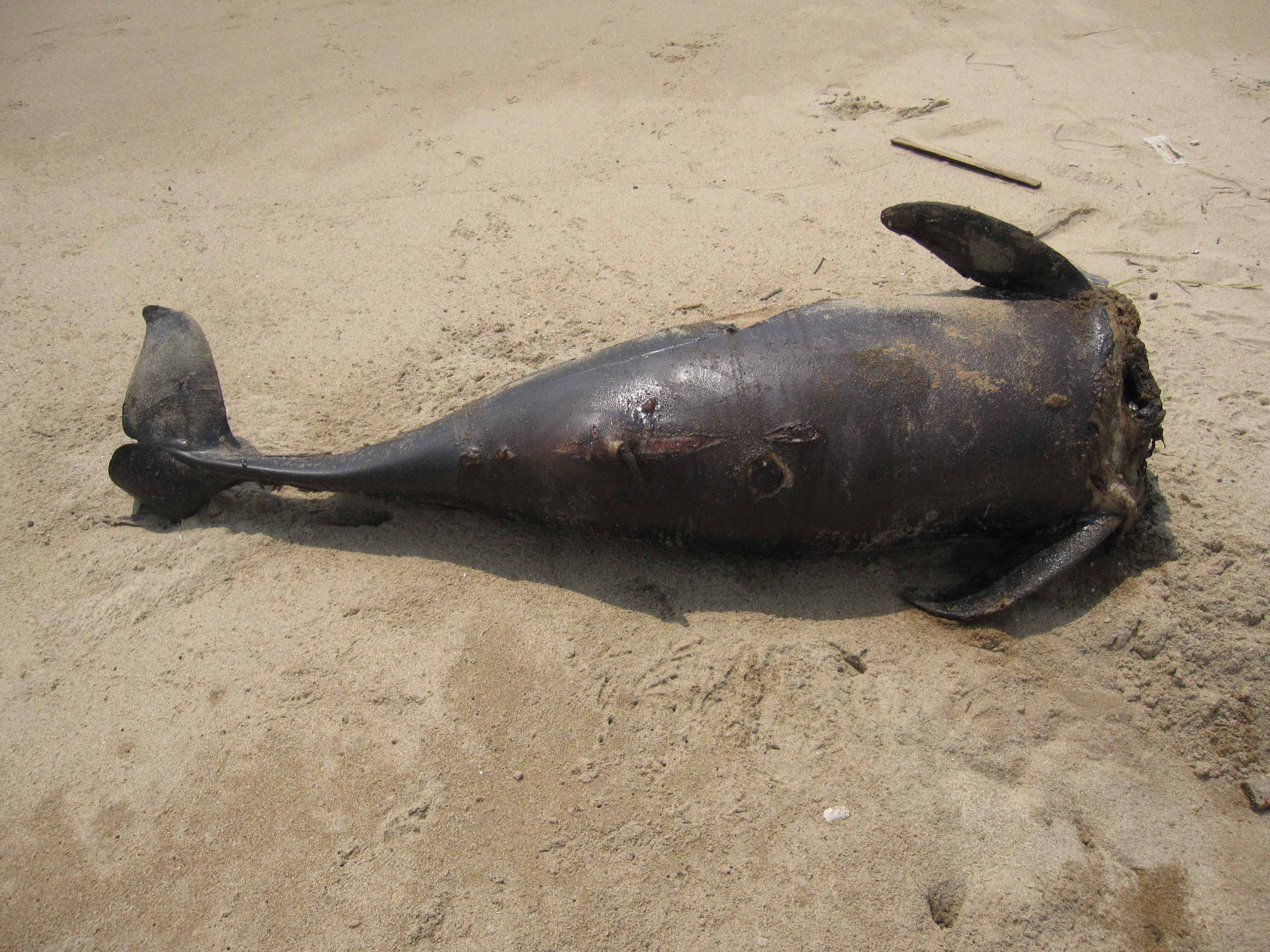 |
|
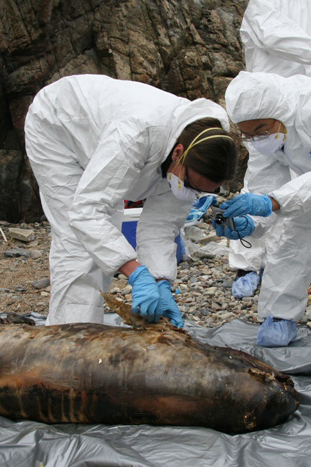 |
Infection Pneumonia, parasitism and bacterial infection are common causes of death. Although we cannot determine the cause of death for most cases, we can still conduct further analysis on the samples we took from the carcass, which could help the Foundation, the government and other research institutes to understand more on the condition of nearby waters. OPCFHK has been collaborating with several institutes on different topics: aiding Li Ka Shing Faculty of Medicine, The University of Hong Kong to study diseases affecting stranded cetaceans; facilitating City University of Hong Kong to study recent and historic food sources, habitats and pollutant exposures of Chinese white dolphins and finless porpoises in Pearl River Estuary; and supporting Sun Yat-sen University on the research on feeding habits, genetic relationships and the age of Chinese white dolphins and finless porpoises. |
Get Involved
 |
|
|---|---|
|
Report stranding cases
|
Join Friends of the Foundation |
|
Be a responsible dolphin watcher AFCD's Code of Conduct for Dolphin Watching Activities
|
Cherish our ocean |
